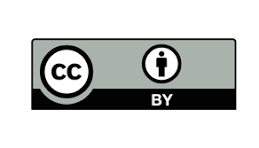THE RELEVANCE OF PHONETICS AND PHONOLOGY IN THE CLASSES OF ENGLISH AS A FOREIGN LANGUAGE: A Contrastive Approach
A RELEVÂNCIA DA FONÉTICA E DA FONOLOGIA NAS AULAS DE INGLÊS COMO LÍNGUA ESTRANGEIRA: Uma Abordagem Contrastiva
Palavras-chave:
Phonetics, Phonology, Pronunciation Teaching, Intelligibility, Fonética, Fonologia, Abordagem contrastiva, Ensino de pronúncia, InteligibilidadeResumo
Este trabalho de conclusão de curso pretende enfatizar a relevância da fonética e da fonologia para o ensino e a aprendizagem da pronúncia na aquisição do inglês como língua estrangeira, uma habilidade que, em muitos casos, não recebe a devida atenção nas aulas de inglês no Brasil, tanto na escola regular como nas escolas de idiomas. Através de uma abordagem contrastiva entre fonemas do inglês e do português, esta pesquisa pretende sugerir que a pronúncia deve ser ensinada desde as aulas iniciais, com o uso de um quadro fonético da língua inglesa e explicações sobre o aparelho fonador, a fim de que os alunos possam superar obstáculos que naturalmente existem ao se estudar uma língua estrangeira e aprendam uma pronúncia inteligível
Abstract
This final paper aims to emphasize the relevance of Phonetics and Phonology for pronunciation teaching and learning in the acquisition of English as a foreign language, an ability that in many cases, fails to receive due attention in English classes in Brazilian schools, both in regular ones and in language institutes. Through a contrastive approach between phonemes of English and Portuguese, this research aims to suggest that pronunciation must be taught since the initial classes, with the use of an English phonemic chart and explanations about the vocal tract, so learners can overcome obstacles that naturally exist when studying a foreign language and learn an intelligible pronunciation.
Downloads
Referências
CELCE-MURCIA, Marianne; BRINTON, Donna M.; GOODWIN, Janet M. Teaching pronunciation: a reference for teachers of English to speakers of other languages. New York: Cambridge University Press, 2007.
CRISTÓFARO-SILVA, Thaïs. Pronúncia do inglês para falantes do português brasileiro. 2.ed. São Paulo: Contexto, 2015.
DUBOIS, Jean (et al). Dicionário de linguística. 2. ed. São Paulo: Cultrix, 2014.
ENGLISH EXPERTS. Gerador de símbolos fonéticos. Disponível em <https://www.englishexperts.com.br/gerador-de-simbolos-foneticos/> Acesso em 17 maio 2017.
FIORAVANTI, Carlos. "R" caipira é invenção dos brasileiros, conclui estudo linguístico. UOL notícias, Abr. 2015. Disponível em <https://noticias.uol.com.br/ciencia/ultimas-noticias/redacao/2015/04/12/em-200anos-teremos-dificuldades-para-nos-comunicar-com-portugueses.htm> Acesso em 12 mai. 2018.
INTERNATIONAL PHONETIC ASSOCIATION. Full IPA chart. Available at <https://www.internationalphoneticassociation.org/content/full-ipa-chart> Retrieved 7 Apr. 2018.
LILLET, Amanda. Introduction to schwa. Pronuncian. Available at <https://pronuncian.com/intro-to-schwa> Retrieved 29 Jan. 2018.
______. Learn to hear vowels to learn to pronounce them. Pronuncian, Oct. 2016. Available at <https://pronuncian.com/podcasts/episode218> Retrieved 24 Dec. 2017.
______. The vocal tract. Pronuncian. Available at <https://pronuncian.com/thevocal-tract/> Retrieved 24 Dec. 2017.
LINDSEY, Cora; KNIGHT, Paul. Learning and teaching English: a course for teachers. Oxford: Oxford University Press, 2011.
MERRIAM-WEBSTERDICTIONARY. Available at <https://www.merriamwebster.com/> Retrieved 25 Oct. 2017.
NORDQUIST, Richard. Schwa definition and examples in English. ThoughtCo, Apr. 2017. Available at <https://www.thoughtco.com/schwa-vowel-sound-1691927> Accessed on 3 Feb. 2018.
______. Standard American English. ThoughtCo, Oct. 2017. Available at <https://www.thoughtco.com/standard-american-english-1692134> Accessed at 7 Oct. 2017.
PAULA, Luciane Guimarães de. O ensino da pronúncia do Inglês e a abordagem comunicativa. Revista Letrônica, on-line. v. 3, n. 1, p.153, jul. 2010. Disponível em <https://www.google.com.br/url?sa=t&rct=j&q=&esrc=s&source=web&cd=1&cad=rja &uact=8&ved=0ahUKEwiF1eKZhcDUAhWJUJAKHXAaBB8QFggmMAA&url=http%3 A%2F%2Frevistaseletronicas.pucrs.br%2Fojs%2Findex.php%2Fletronica%2Farticle %2Fdownload%2F5053%2F5470&usg=AFQjCNFjkq7dFzLIq8KBomPK26LsXGDoLw > Acesso em 17 maio 2017.
RAMOS, Paulo Roberto de Souza. Considerações sobre o ensino de pronúncia do Inglês como língua internacional a falantes do Português brasileiro. Disponível em <https://www.google.com.br/url?sa=t&rct=j&q=&esrc=s&source=web&cd=1&cad=rja &uact=8&ved=0ahUKEwiS8YfOgsDUAhWHkZAKHRZVBFIQFggmMAA&url=https%3 A%2F%2Fwww.uniritter.edu.br%2Fuploads%2Feventos%2Fsepesq%2Fx_sepesq% 2Farquivos_trabalhos%2F2966%2F570%2F679.pdf&usg=AFQjCNFtR42q9zP2zwc1 61arsO1_ms0eXA> Acesso em 17 maio 2017.
SMITH, Rachel. Flap t: really a d sound? Rachel’s English. Available at <https://rachelsenglish.com/flap-t-really-d-sound/> Retrieved 30 Jan. 2018.
______. How to pronounce the schwa [ə]. Rachel’s English. Available at <http://rachelsenglish.com/english-pronounce-schwa/> Retrieved 30 Jan. 2018.
SPRATT, Mary; PULVERNESS, Alan; WILLIAMS, Melanie. The TKT course. Cambridge: Cambridge University, 2008.
SZYNALSKI, Tomasz P. Introduction to phonetic transcription. Antimoon. Available at <http://www.antimoon.com/how/pronunc-trans.htm> Retrieved 21 Dec. 2017.
TOPHONETICS. Transcrição fonética AFI de texto inglês. Disponível em <https://tophonetics.com/pt/> Acesso em 28 jul. 2018.
UNDERHILL, Adrian. The charts. Adrian Underhill’s pronunciation site. Available at <http://www.adrianunderhill.com/the-pronunciation-charts/> Retrieved 31 Mar. 2018.
WILLIAMSON, Graham. Vowel parameters. SLTinfo, May. 2015. Available at <https://www.sltinfo.com/ess101-vowel-parameters/> Retrieved 7 Apr. 2018.
Downloads
Publicado
Como Citar
Edição
Seção
Licença
Copyright (c) 2018 Episteme Transversalis

Este trabalho está licenciado sob uma licença Creative Commons Attribution-NonCommercial 4.0 International License.
Revista Episteme Transversalis © 2010 por Centro Universitário Geraldo Di Biase está licenciada sob Creative Commons Atribuição 4.0 Internacional. Para visualizar uma cópia desta licença, visite https://creativecommons.org/licenses/by/4.0/













